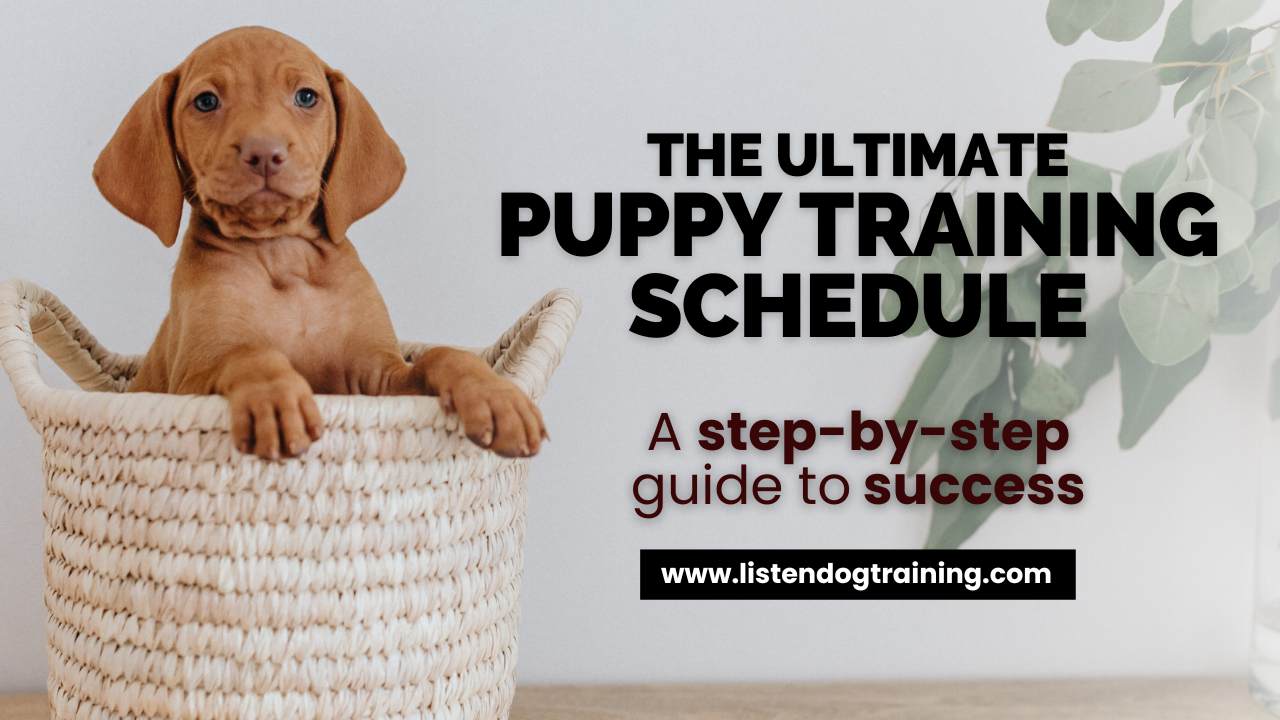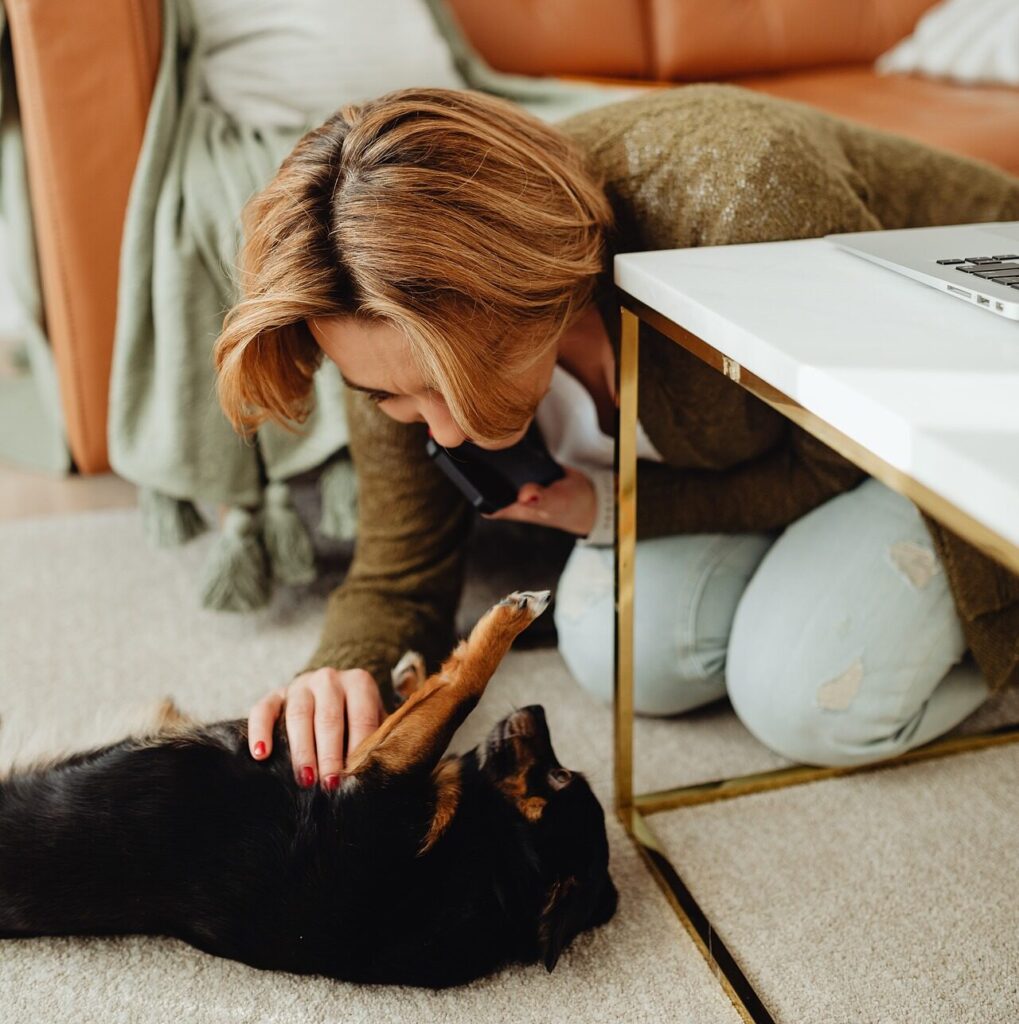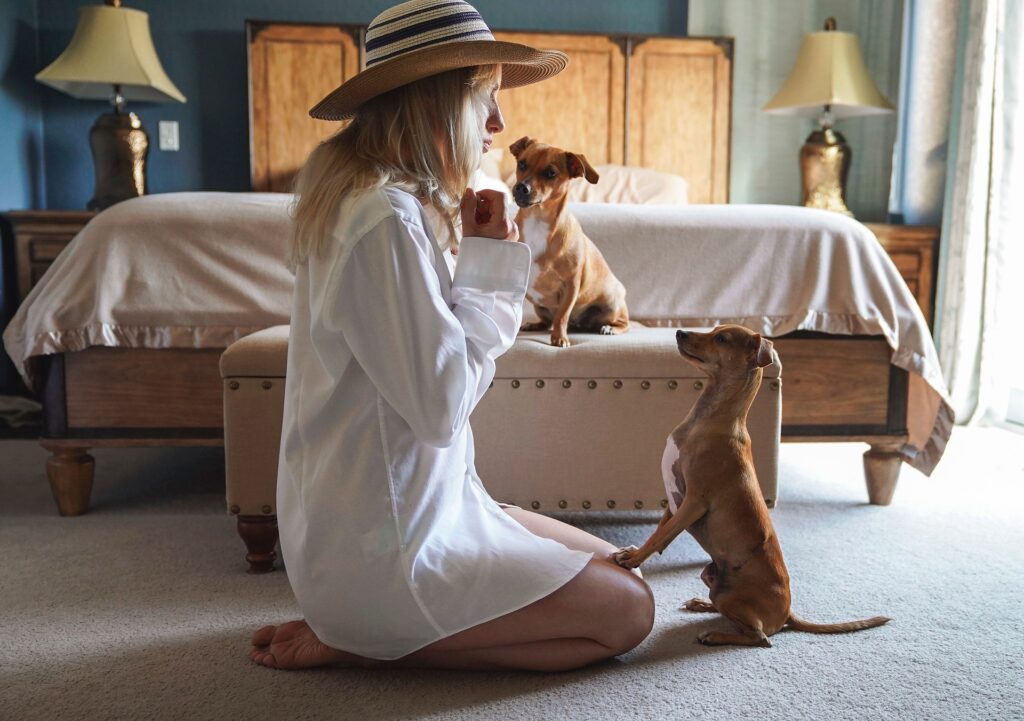The Ultimate Puppy Training Schedule: A Step-by-Step Guide for Success

Are you ready to turn your furry ball of energy into a well-behaved companion? Welcome to the Ultimate Puppy Training Schedule: A Step-by-Step Guide for Success. Whether you’re a first-time puppy parent or looking to improve your training techniques, this comprehensive schedule will be your roadmap to a harmonious relationship with your new pup.
In this guide, we’ll walk you through a proven training schedule designed to help your puppy develop essential skills and behaviours. From toilet training to lead manners, socialisation to basic commands, we’ve got you covered at every stage of your puppy’s development. With a focus on positive reinforcement and effective communication, you’ll learn how to foster trust and respect while nurturing your puppy’s potential.
Get ready to set achievable training goals, establish a routine that works for both you and your puppy, and troubleshoot common challenges along the way. Whether it’s teaching your puppy to come when called or mastering loose lead walking, this guide will equip you with the tools and knowledge needed to succeed. Let’s embark on this fulfilling journey to a well-mannered and happily trained puppy, together!
The Importance of a Puppy Training Schedule
Training a puppy is not just about teaching them basic commands; it’s about laying the foundation for a lifetime of good behaviour and mutual understanding. A structured training schedule provides consistency, which is crucial for a puppy’s learning process. Consistent training helps your puppy understand what is expected of them, which in turn will help grow their confidence.
When a well-planned training schedule sets clear boundaries and expectations, it’s easy to foster a harmonious coexistence between you and your puppy, helping to prevent behaviour problems from developing, by addressing them proactively. By investing time and effort in a training schedule, you’re not only shaping your puppy’s behaviour but also strengthening your bond.
Dogs thrive on routine, and having a consistent schedule for training, feeding, playtime, and rest can contribute to their overall well-being, especially in the early days and weeks in a new environment. It gives them a sense of security and helps them understand what to expect, reducing anxiety and promoting a balanced, happy demeanour.

Understanding Your Puppy’s Developmental Stages
Before diving into a training schedule, it’s crucial to understand the developmental stages that puppies go through. Puppies go through several developmental periods, each with its own set of milestones and challenges. Understanding these stages will help you tailor your training approach to meet your puppy’s specific needs at each phase of their development.
The socialisation period, which typically occurs between 3 and 12 weeks of age, is a critical stage for exposing your puppy to various experiences, people, and environments. It’s during this time that puppies are most receptive to new stimuli and are forming lifelong impressions. Proper socialisation during this stage can significantly influence your puppy’s behaviour and confidence as they grow older. For a comprehensive guide and checklist to help you ensure your socialisation is a success, check out our digital dog training planner…
The juvenile period, spanning from 3 to 6 months, is characterised by increased independence and exploration. Puppies may push boundaries and test limits during this stage, making consistent training and positive reinforcement essential for shaping desirable behaviours. Understanding these developmental stages will help you tailor your training methods to suit your puppy’s evolving needs.
Basic Puppy Training Techniques
When it comes to training a puppy, positive reinforcement is key. Positive reinforcement involves rewarding your puppy for exhibiting desired behaviours, such as sitting when asked or coming when called. This can be done using treats, praise, or playtime, reinforcing the idea that good behaviour leads to positive outcomes.
Consistency is another fundamental aspect of training. Consistent commands, expectations, and rewards help your puppy understand what is expected of them. It’s essential for all family members to be on the same page regarding training methods to avoid confusion for the puppy.
Patience and understanding are crucial for successful training. Puppies are learning about the world around them, and they will make mistakes. It’s important to approach training with empathy and a willingness to guide your puppy through the learning process. Rushing or becoming frustrated can hinder your puppy’s progress and erode the trust between you and your furry companion.
Creating a Structured Daily Routine
A structured daily routine is the backbone of a successful puppy training schedule. Consistency and predictability help your puppy feel secure and understand what is expected of them. Start by establishing set times for feeding, potty breaks, playtime, training sessions, and rest. This routine will provide a framework for your puppy’s day and make it easier for them to learn and adapt to their environment.
Incorporate mental and physical stimulation into your puppy’s daily routine. Mental stimulation can come in the form of puzzle toys, training exercises, or interactive games that engage your puppy’s mind. Physical exercise, such as walks, play sessions, and exploration, is crucial for burning off excess energy and promoting good behaviour.
Remember to factor in ample rest periods for your puppy. Puppies need plenty of sleep to support their growth and development. Create a comfortable, designated sleeping area for your puppy, and ensure they have a quiet, cosy space to rest undisturbed.
Socialisation and Exposure Training
Socialisation is a vital aspect of a puppy’s development and should be a priority in your training schedule. Positively exposing your puppy to a wide range of people, animals, environments, and experiences during their socialisation period can help prevent fearfulness and anxiety or reactivity later in life. Properly socialised puppies are more likely to grow into well-adjusted, confident dogs.
When socialising your puppy, focus on creating positive associations. Ensure that interactions with people, other animals, and new environments are rewarding and enjoyable for your puppy. This can help build their confidence and teach them to approach new experiences with a positive outlook.
Exposure training goes hand in hand with socialisation. Introduce your puppy to various stimuli gradually, always at a pace that they are comfortable with. This can include different surfaces, sounds, textures, and objects. Exposing your puppy to a wide range of stimuli in a positive and controlled manner can help prevent fear and anxiety responses in unfamiliar situations.

Obedience Training and Commands
Obedience training is an essential component of a puppy training schedule. Teaching your puppy basic commands, such as sit, stay, come, and down, lays the groundwork for effective communication and cooperation. Start with one command at a time, using positive reinforcement and patience to guide your puppy through the learning process.
Consistency is key when teaching obedience commands. Use the same cues and gestures every time, and be sure to reward your puppy for following the command correctly. Short, frequent training sessions are more effective than long, infrequent ones, as they help your puppy retain information and stay engaged.
As your puppy masters basic commands, you can gradually introduce more advanced training exercises. This can include lead manners, recall training, and impulse control exercises, all of which you’ll find inside our Design Your Own Dog Training Pack! Building a strong foundation of obedience and communication will set the stage for a well-behaved and responsive dog.
Crate and Toilet Training
Toilet training and crate training are essential elements of a puppy’s early education. Crate training provides a safe and secure space for your puppy, while also aiding in house training and preventing destructive behaviours when unsupervised. When introduced properly, a crate becomes a comfortable den where your puppy can relax and feel secure. For more details on how to ensure your puppy falls in love with their crate, check out our detailed article, Crate Training A Puppy Made Easy, right here.
Toilet training involves teaching your puppy where and when to eliminate. Establish a consistent schedule for toilet breaks, and be attentive to your puppy’s cues to prevent accidents. Positive reinforcement, such as treats and praise, can help reinforce good toileting habits and encourage your puppy to eliminate in the appropriate outdoor area.
Consistency is crucial for both crate and potty training. By following a structured routine, providing ample opportunities for your puppy to relieve themselves outside, and rewarding desired behaviours, you can set them up for success in both areas.
Troubleshooting Common Training Challenges
It’s normal for puppy training to come with its share of challenges; encountering obstacles and setbacks is part of the process. However, with patience and persistence, many common training challenges can be overcome.
If your puppy displays unwanted behaviours, such as chewing, jumping, or excessive barking, it’s essential to address these issues proactively. Redirecting your puppy’s attention to appropriate toys, teaching alternative behaviours, and providing mental and physical stimulation can help curb unwanted behaviours.
Consistency in training methods and expectations is crucial when troubleshooting challenges. Avoiding mixed signals and remaining patient can help your puppy understand what is expected of them. Remember that every puppy is unique, and some may require more time and repetition to grasp certain concepts.
Advanced Training and Enrichment Activities
Once your puppy has mastered basic obedience and manners, you can explore advanced training and enrichment activities to continue their development. This can include agility training, scent work, interactive puzzle toys, and advanced obedience exercises. Engaging in these activities provides mental stimulation, physical exercise, and strengthens the bond between you and your dog.
Enrichment activities are essential for preventing boredom and promoting a well-rounded, happy dog. They tap into your puppy’s natural instincts and abilities, providing an outlet for their energy and curiosity. As you explore advanced training and enrichment activities, continue to use positive reinforcement and patience to guide your puppy through new challenges.
Remember that training is an ongoing process, and it’s important to continue engaging your puppy’s mind and body throughout their life. By incorporating advanced training and enrichment activities into your routine, you can provide your puppy with ongoing opportunities for growth and fulfilment.

Maintaining a Lifelong Training Plan
As you progress through the stages of puppy training, it’s important to remember that training is an ongoing commitment. Consistency, patience, and positive reinforcement will continue to be essential as your puppy grows into an adult dog. By maintaining a lifelong training plan, you can ensure that your dog’s good behaviour and manners are upheld throughout their life.
Continuing to socialise and expose your dog to new experiences, reinforcing obedience commands, and providing mental and physical stimulation will help keep your dog happy, well-adjusted, and responsive. Regular training sessions, interactive play, and positive reinforcement will strengthen your bond and communication with your dog, fostering a relationship built on trust and respect.
By following the advice in this puppy training schedule article, and incorporating these principles into your training approach, you’re setting the stage for a lifetime of joy and companionship with your well-mannered and happily trained dog. Embrace the journey of training, and celebrate the progress and achievements along the way. Remember, the key to successful puppy training lies in patience, empathy, and a commitment to nurturing your puppy’s potential.
Here’s to a harmonious and fulfilling relationship with your furry friend!




